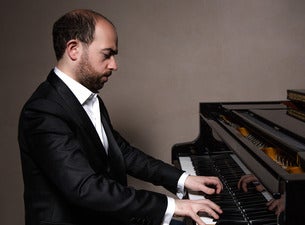
Classical
François Dumont Tickets
Events
0 Upcoming Events
Sorry... there are currently no upcoming events.
About
Mastering the art of vocal composition was the ultimate goal of musical education in France: studies at the Paris Conservatoire were geared to achieving that final stage of theoretical knowledge, and candidates for the Prix de Rome were assessed on their ability to produce such a work, in the form of a cantata. The emphasis on vocal music may be explained by the high prestige in France of opera and opéra-comique, which in Jules Massenet’s time also extended to oratorio and the mélodie. Eager to explore areas other than the stage, his generation took to the concert hall and the salon with the same dedication and a desire to achieve nobility of style in every genre.
Très bon pianiste, Jules Massenet a très tôt écrit pour son instrument (Dix Pièces de genre, 1866) avant de le délaisser pour se consacrer corps et âme à des formes orchestrales et lyriques. Il y revient pourtant à la toute fin du siècle. Après la mort d’Ambroise Thomas et sa démission du Conservatoire, il se tourne de nouveau vers les salons parisiens avec des œuvres pianistiques publiées en recueil : Deux impromptus (1896) et Deux Pièces pour piano (1907). Ces œuvres évocatrices se mêlent alors aux premières productions de ses élèves, depuis les Portraits de peintres de Hahn (1894) jusqu’à la Rêverie de Paul Hillemacher (1908), en passant par la Romance de Leroux, Les Barques de Schmitt (1898) et l’Étude symphonique de Pierné (1903).
Très bon pianiste, Jules Massenet a très tôt écrit pour son instrument (Dix Pièces de genre, 1866) avant de le délaisser pour se consacrer corps et âme à des formes orchestrales et lyriques. Il y revient pourtant à la toute fin du siècle. Après la mort d’Ambroise Thomas et sa démission du Conservatoire, il se tourne de nouveau vers les salons parisiens avec des œuvres pianistiques publiées en recueil : Deux impromptus (1896) et Deux Pièces pour piano (1907). Ces œuvres évocatrices se mêlent alors aux premières productions de ses élèves, depuis les Portraits de peintres de Hahn (1894) jusqu’à la Rêverie de Paul Hillemacher (1908), en passant par la Romance de Leroux, Les Barques de Schmitt (1898) et l’Étude symphonique de Pierné (1903).
